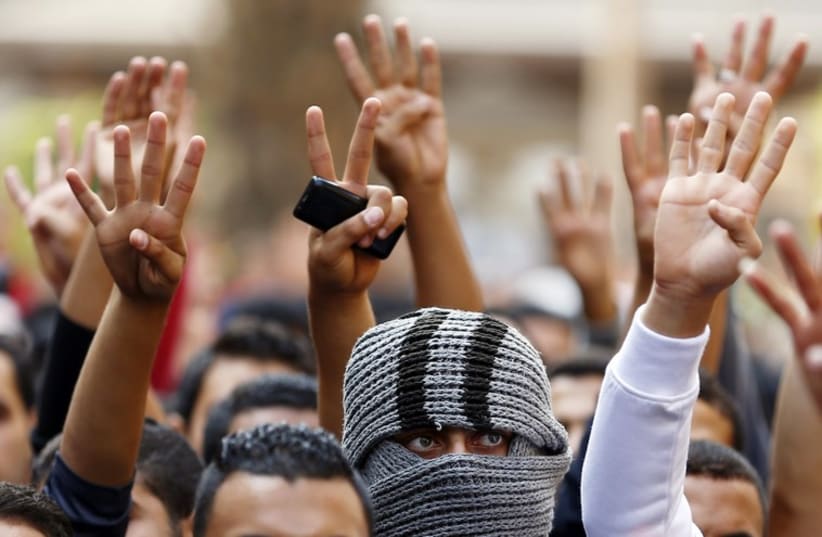"The president has consulted with his national security team and leaders in the region who share his concern, and this designation is working its way through the internal process,” White House press secretary Sarah Sanders said in an email.
Egyptian President Abdel Fattah al-Sisi asked President Donald Trump to make the designation, which Egypt has already done, in a private meeting during a visit to Washington on April 9, a senior U.S. official said, confirming a report in the New York Times on Tuesday.
After the meeting, Trump praised Sisi as a "great president" while a bipartisan group of U.S. lawmakers raised concerns about Sisi’s record on human rights, efforts to keep him in office for many years and planned Russian arms purchases.
Sisi, who ousted President Mohamed Mursi of the Muslim Brotherhood in 2013 and was elected president the following year, has overseen a crackdown on Islamists as well as liberal opposition in Egypt.
White House national security adviser John Bolton and Secretary of State Mike Pompeo support the designation but officials at the Pentagon and elsewhere have been opposed and have been seeking more limited action, the senior official said.
The Brotherhood, which estimates its membership at up to 1 million people, came to power in Egypt’s first modern free election in 2012, a year after long-serving autocrat Hosni Mubarak was toppled in a popular uprising. But the movement is now banned and thousands of its supporters and much of its leadership have been jailed.
The Egyptian government blamed the organization for a 2013 suicide bomb attack on a police station that killed 16 people. The Brotherhood condemned that attack and denies using violence.
Some conservative and anti-Muslim activists have argued for years that the Brotherhood, which was founded in Egypt in 1928 and sought to establish a worldwide Islamic caliphate by peaceful means, has been a breeding ground for terrorists.
Designating the Muslim Brotherhood a terrorist designation could complicate Washington's relationship with NATO ally Turkey. The organization has close ties with President Tayyip Erdogan’s ruling AK Party and many of its members fled to Turkey after the group’s activities were banned in Egypt.
Turkey is under threat of U.S. sanctions if it pursues plans to purchase Russian S-400 missile defense systems, which are not compatible with NATO systems.
Washington also says Turkey’s purchase of the S-400s would compromise the security of F-35 fighter jets, which are built by Lockheed Martin Corp and use stealth technology.
The U.S. administration debated the terrorist designation for the Muslim Brotherhood shortly after Trump took office in January 2017. (https://reut.rs/2J0Qefj)
Some branches of the Brotherhood, including the Palestinian group Hamas, have engaged in anti-government violence and provoked violent government reactions. Ayman al-Zawahiri, the leader of al-Qaeda, was once a member of the Egyptian Muslim Brotherhood.Other offshoots in Turkey and Tunisia have forsworn violence and come to power by democratic means.
